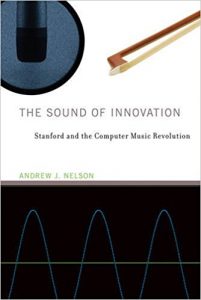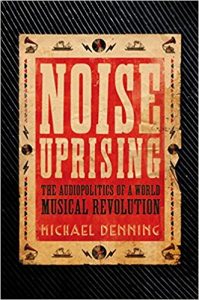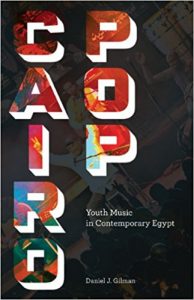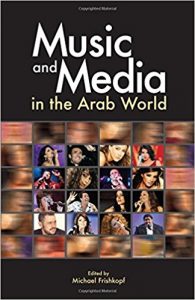Every decade spawns a musical revolution.
The ’60s birthed psychedelia, the ’70s punk, the ’80s hip-hop, the ’90s grunge, and even the aughts brought a bold new sound: Southern rap.
At the start of this century, stars from Lil Wayne to T.I. to Rick Ross restated the power, and eccentricity, of regional music, giving once isolated sounds national resonance.
Check out some of these books on musical revolutions happening around the world and throughout time.
 The Sound of Innovation: Stanford and the Computer Music Revolution
The Sound of Innovation: Stanford and the Computer Music Revolution
How a team of musicians, engineers, computer scientists, and psychologists developed computer music as an academic field and ushered in the era of digital music.
Tropical Truth: A Story of Music and Revolution in Brazil
In the year 2000, Brazil commemorated not only the passing of the century and the millennium but also the five hundred years since her discovery. To this date, then, is attached an accumulation of meaning not shared with any other country in the world. And the flood of omens let loose at this juncture is closely allied with the psychology of Brazil-a failed nation ashamed of having once been called “the country of the future.” In fact, those past expectations have today taken the form of a resignation that underlies new frustrations, but the magnitude of Brazil’s disillusionment reveals that-fortunately or not-we remain very far from a sensible realism.
 Noise Uprising: The Audiopolitics of a World Musical Revolution
Noise Uprising: The Audiopolitics of a World Musical Revolution
Noise Uprising brings to life the moment and sounds of a cultural revolution. Between the development of electrical recording in 1925 and the outset of the Great Depression in the early 1930s, the soundscape of modern times unfolded in a series of obscure recording sessions, as hundreds of unknown musicians entered makeshift studios to record the melodies and rhythms of urban streets and dancehalls. The musical styles and idioms etched onto shellac disks reverberated around the globe: among them Havana’s son, Rio’s samba, New Orleans’ jazz, Buenos Aires’ tango, Seville’s flamenco, Cairo’s tarab, Johannesburg’s marabi, Jakarta’s kroncong, and Honolulu’s hula. They triggered the first great battle over popular music and became the soundtrack to decolonization.
Girl Power: The Nineties Revolution in Music
In the early nineties, riot grrrl exploded onto the underground music scene, inspiring girls to pick up an instrument, create fanzines, and become politically active. Rejecting both traditional gender roles and their parents’ brand of feminism, riot grrrls celebrated and deconstructed femininity. The media went into a titillated frenzy covering followers who wrote “slut” on their bodies, wore frilly dresses with combat boots, and talked openly about sexual politics.
 Cairo Pop: Youth Music in Contemporary Egypt
Cairo Pop: Youth Music in Contemporary Egypt
Cairo Pop is the first book to examine the dominant popular music of Egypt, shababiyya. Scorned or ignored by scholars and older Egyptians alike, shababiyya plays incessantly in Cairo, even while Egyptian youth joined in mass protests against their government, which eventually helped oust longtime Egyptian president Hosni Mubarak in early 2011. Living in Cairo at the time of the revolution, Daniel Gilman saw, and more importantly heard, the impact that popular music can have on culture and politics. Here he contributes a richly ethnographic analysis of the relationship between mass-mediated pop.
Retuning Culture: Musical Changes in Central and Eastern Europe
As a measure of individual and collective identity, music offers both striking metaphors and tangible data for understanding societies in transition—and nowhere is this clearer than in the recent case of the Eastern Bloc. Retuning Culture presents an extraordinary picture of this phenomenon. This pioneering set of studies traces the tumultuous and momentous shifts in the music cultures of Central and Eastern Europe from the first harbingers of change in the 1970s through the revolutionary period of 1989–90 to more recent developments.
 Music and Media in the Arab World
Music and Media in the Arab World
Since the turn of the twentieth century the dramatic rise of mass media has profoundly transformed music practices in the Arab world. Music has adapted to successive forms of media dissemination – from phonograph cylinders to MP3s – each subjected to the political and economic forces of its particular era and region. Carried by mass media, the broader culture of Arab music has been thoroughly transformed as well. Simultaneously, mass mediated music has become a powerful social force. While parallel processes have unfolded worldwide, their implications in the Arabic-speaking world have thus far received little scholarly attention. This provocative volume features sixteen new essays examining these issues, especially televised music and the controversial new genre of the music video. Perceptive voices – both emerging and established – represent a wide variety of academic disciplines. Incisive essays by Egyptian critics display the textures of public Arabic discourse to an English readership. Authors address the key issues of contemporary Arab society – gender and sexuality, Islam, class, economy, power, and nation – as refracted through the culture of mediated music. Interconnected by a web of recurrent concepts, this collection transcends music to become an important resource for the study of contemporary Arab society and culture.
